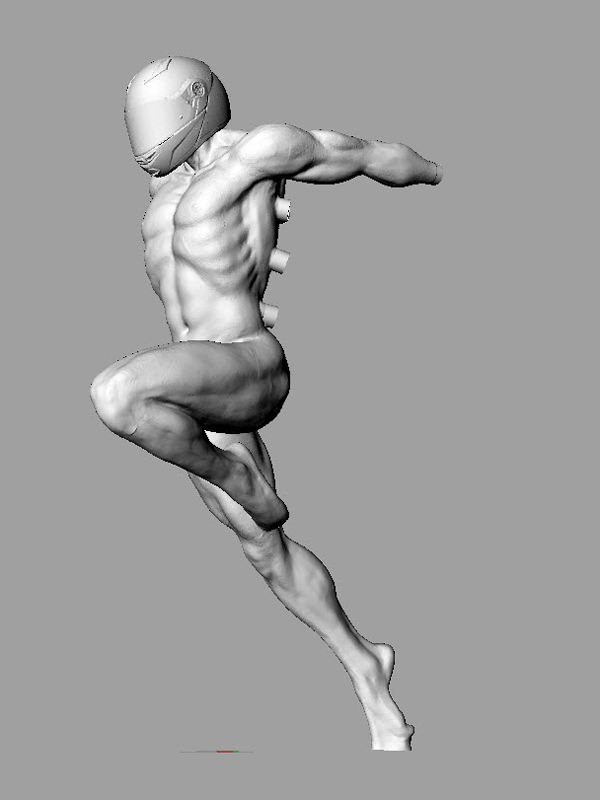3D Printing is on its way to revolutionize how sculptors works. Tany Foundry is the first fine art foundry in China exploring how to employ 3D printing technique into bronze casting.
In this short tutorial, I am going to show you how and why 3D Printing is helpful to create sculptures, even for “traditional sculptors”. Also, I will use a project we recently accomplished to show you the process step by step.
Step 1: Creating 3D model Overall, there are two ways to create 3D model.
- 3D Scanning
- Digital Modelling
The biggest benefit of using 3D printing to create sculpture is what it allows you the maximum flexity and freedom to make your works without needing to worry about cost and time. It is much easier to modify a sculpture than on clay. Besides, it costs less, both in time and money.
Four lens 3D scanner we use for scanning objects, which features high scanning accuracy and speed.
Above are the most often used 3D modelling software. In another tutorial, I am going to demonstrate how to choose the right software.
This is the digital model of the sculpture, which is for us to 3D print and cast bronze. The artist creates the digital model by 3D scanning his maquette.
Step 2: 3D Printing
There are a few options of 3D Printings. Below are some of the most commonly used, which are chosen based on the size and printing of your sculpture.
- 3DP : Used for small sized object. It can be useful when you need your sculptures to be printed in color.
- MEM: It features high strength and low cost. The accuracy is not very high.
- SLS: It can print out different material, even metal.
- SLA: It is useful for small sized works. Accuracy is acceptable.
After data processing, we 3D print out the digital model. We choose the High Definition mode to make the surface of the sculpture smooth. Please note, even printing with the most advanced printer, the surface of the sculpture has to be sanded and smoothened.
For some low end 3D printer, there will be lots of layered line left on the surface so you need to make sure to sand it completely.
We suggest using very fine sand paper for sanding the 3D print. The sand paper we use #1000 and #2000.
Step 3: Molding
We make rubber mold as well as wax mould from the 3D print. It is important to compare the wax with the 3D as well as the original digital model very carefully and retouch the wax if necessary.
There are two options for bronze casting: lost wax casting and sand casting. Since most of 3D print is small in size, we use lost wax casting technique in most cases.
Step 4: Bronze casting
Just like on wax, the finished bronze casting has to be compared with the 3D print thoroughly and refined if necessary.
If you have any technique question about how to apply 3D printing to sculpting or need a quote for your own work,Please click the button below to contact us.













I want to make 3d images of fine and thin detailed flowers and other natural objects to then be cast in bronze. Which 3d print program do you recommend using for works of this level of detail and delicacy? Is this work that you can produce in your foundry? I plan to start with small scale and then scale up the pieces from the original .
I want to make a bronze image of a football player from a clay sculpted original. Please advise me.
Thank you
If I make small stainless steel objects by casting (for accuracy) Can it be polished to mirror finish? Or would the sheen fade over time?
imtc2@yahoo.com I presume I want to use the SLS method to render a sculpture I’ve created and had scanned into metal form
Gee thanks for not bothering to answer anyone’s questions since mid 2014. Way to go Tany! BTW YOU SUCK! Hope you go out of business your customer service sucks.
Hahahaha Jay, you are greate!